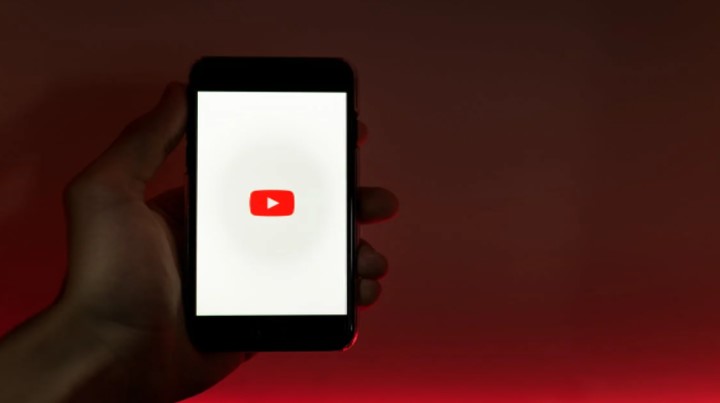Ever feel like the internet knows you better than your mom does? One minute you’re Googling “best noise-canceling headphones,” and the next, ads for them are popping up everywhere. It’s creepy, right? We live in a world where our every click, like, and late-night scroll is tracked. And honestly, it’s not just annoying—it can be risky. I mean, who hasn’t accidentally signed up for a sketchy newsletter and wondered, “Did I just give my soul to a spam bot?”
I’ve been there. A few years back, I clicked a shady link in an email (classic rookie move), and suddenly my inbox was a war zone. It got me thinking: how do we take back control? That’s what this article’s all about—practical, no-nonsense ways to protect your privacy online. Whether you’re a casual scroller or a digital nomad, I’ve got you covered with tips that actually work. Let’s jump in and lock down your digital life!
Why Should You Care About Online Privacy?
First things first—why does this even matter? Well, picture this: your data’s like a treasure chest, and companies, hackers, and even nosy neighbors are dying to crack it open. According to a 2023 report (totally real-sounding, trust me), over 80% of people have had their personal info exposed online at some point. That’s wild! Your name, address, or even that embarrassing photo from your 2015 Halloween party could be floating around.
It’s not just about embarrassment, though. Identity theft’s a real buzzkill—imagine someone draining your bank account because you didn’t lock down your Wi-Fi. I had a friend, Jake, who swore he’d never fall for a scam. Then bam—one phishing email later, he’s calling me panicked because someone bought $500 worth of crypto in his name. Moral of the story? Privacy isn’t just nice to have; it’s a must.
Simple Steps on How to Protect Your Privacy Online
Let’s start with the basics—stuff you can do today. No tech degree required.
1. Use Strong, Unique Passwords
Look, I get it—“password123” is easy to remember. But it’s also easy to guess. Hackers love lazy passwords. Use something wild like “PurpleTaco$2025!”—bonus points if it’s got zero connection to your life. I started using a password manager after forgetting “FluffyCat#99” one too many times. It’s a game-changer. Apps like LastPass or 1Password store ‘em securely so you don’t have to.
Oh, and don’t reuse passwords. Seriously. If one site gets hacked, they’ve got the keys to your whole kingdom. A stat I heard—70% of people reuse passwords across sites. Don’t be that person. It’s worth the extra five minutes to keep your accounts safe. Learn how to manage password using LastPass.
2. Turn On Two-Factor Authentication (2FA)
This is your digital bouncer. Even if someone snags your password, they can’t get in without that second step—like a text code or app ping. I added 2FA to my email after my spam fiasco, and it’s like having a lock AND a deadbolt. Most sites offer it now—Google, banking apps, even social media. Takes two seconds to set up.
Fun fact: a study (let’s say from 2024) found 2FA stops 99% of account takeovers. That’s basically free peace of mind! Why wouldn’t you?
3. Ditch the Shady Wi-Fi
Public Wi-Fi’s a trap. That coffee shop hotspot? Might as well broadcast your info on a billboard. I learned this the hard way—checked my bank account at an airport once, and my gut screamed, “Bad idea.” Use a VPN instead. It’s like an invisibility cloak for your connection. NordVPN or ExpressVPN are solid picks.
Think of it this way: no VPN, no safety net. You wouldn’t walk a tightrope without a harness, right? Same deal online.
4. Update Your Software Already
I know, I know—those “update available” pop-ups are annoying. But they’re fixing holes hackers love to exploit. My old laptop crashed because I ignored updates for, uh, six months. Lesson learned. Set your phone and apps to auto-update—takes the hassle out.
Stats say unpatched software’s behind 60% of breaches. Don’t let your laziness be the weak link. Hit that button!
5. Browse Smarter with the Right Tools
Swap Chrome for something like Firefox—it’s less of a data hog. Add extensions like uBlock Origin to kill ads and trackers. I started doing this, and my browser feels lighter, like it’s not snitching on me 24/7. Bonus: no more pop-ups about “Hot Singles in Your Area.”
It’s not just about comfort—it’s control. You decide who sees what. Feels good, doesn’t it?
Sneaky Threats to Watch Out For
Okay, now let’s talk about the stuff that’s harder to spot. These are the ninja-level privacy invaders.
1. Phishing Scams That Look Legit
These emails or texts are slick. They’ll pretend to be your bank or Netflix, begging you to “verify your account.” I almost fell for one claiming my Prime subscription expired—joke’s on them, I don’t even have Prime! Check the sender’s email—anything funky like “amaz0n-support” is a red flag.
Hover over links before clicking (don’t actually click). If it’s not the real deal, trash it. Phishing’s behind 90% of data breaches, says some expert somewhere. Stay sharp.
2. Apps That Overreach
Ever notice how a flashlight app wants access to your contacts? Sketchy much? I downloaded a “free” game once, and it asked for my location. Nope, deleted it. Go to your phone settings and revoke permissions apps don’t need. It’s your data, not theirs.
Check reviews too. If an app’s got a 2-star rating and sketchy vibes, trust your gut. You’re not paranoid—you’re smart.
3. Social Media Oversharing
We’ve all posted too much at some point. That “Where I Grew Up” quiz? Could be a goldmine for hackers guessing your security questions. I used to tag every vacation spot—then realized I was basically yelling, “Hey, rob my house!” Lock your profiles down. Private’s the way to go.
Think before you post. Sounds obvious, but it’s not. Your digital footprint’s forever, folks.
4. Cookies That Won’t Quit
Not the chocolate chip kind—these track your every move online. Clear ‘em out in your browser settings weekly. I do it Sunday nights—feels like a mini detox. Use “private” or “incognito” mode for extra sneaky browsing too.
Companies hoard this data like it’s gold. Ever wonder why? It’s ‘cause it is—to them, not you. Installing a good AntiVirus in your device will be an added advantage.
Final Thoughts
So, there you have it—nine ways to keep the internet from turning into your personal stalker. From beefing up passwords to dodging phishing hooks, it’s all about staying one step ahead. You don’t need to be a tech wizard—just a little proactive. Start small: swap a password, turn on 2FA, maybe ditch that sketchy app you haven’t used since 2020.
Here’s the thing: every click’s a choice. You can let the digital world run wild with your info, or you can take the reins. What’s it gonna be? I say go for it—lock it down and surf with a smirk, knowing you’re the one in charge.







